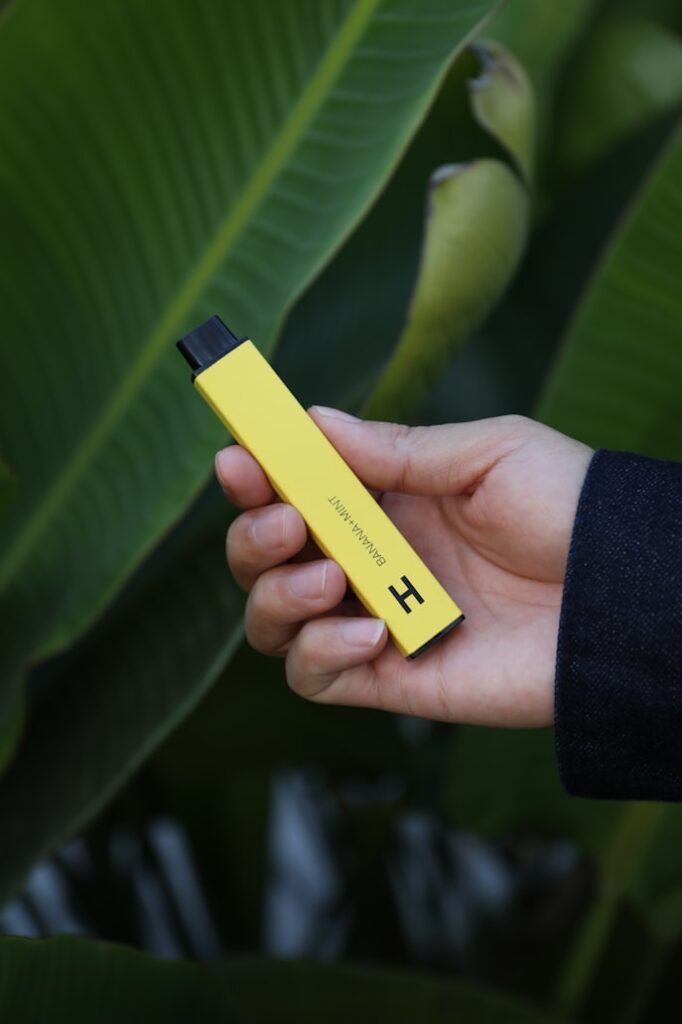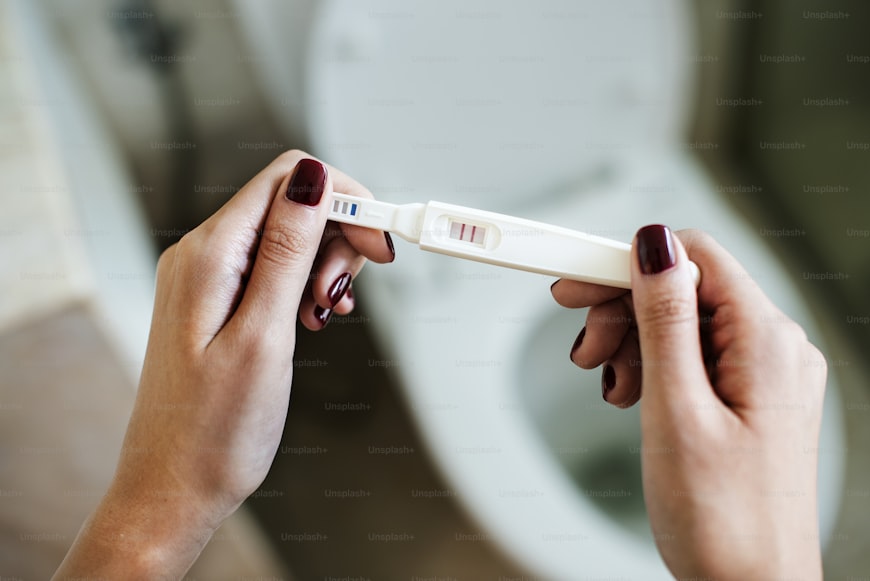If you’ve accidentally vaped while pregnant, you’re likely feeling worried and seeking answers. First, take a deep breath—many expectant mothers have similar concerns about various exposures during pregnancy. While vaping during pregnancy isn’t recommended, a single incident doesn’t necessarily spell disaster.

Table of Contents
This article will explore what you need to know if you’ve vaped accidentally, including potential risks, what to do next, and how to protect your baby’s health going forward. We’ll provide evidence-based information to help you understand the situation and make informed decisions about your pregnancy health.
Understanding the Concern: Vaping During Pregnancy
Vaping has gained popularity as an alternative to traditional smoking, but its safety during pregnancy remains a significant concern. When you vape, you inhale an aerosol that typically contains nicotine, flavorings, and other chemicals. Unlike traditional cigarettes, e-cigarettes don’t produce tar or carbon monoxide, but they’re not risk-free, especially for pregnant women.
The primary concern with vaping during pregnancy is the nicotine content. Nicotine is a highly addictive substance that can cross the placenta and affect your baby’s development. Additionally, some e-cigarette liquids contain other potentially harmful chemicals whose effects on fetal development are not yet fully understood. It’s important to note that while accidental exposure is concerning, it’s different from habitual use. However, understanding these risks can help you make informed decisions about your health and your baby’s well-being.
Immediate Steps to Take After Accidental Vaping
If you’ve accidentally vaped while pregnant, don’t panic.
Here are some steps you can take:
- Stop vaping immediately: If it was truly accidental, ensure it doesn’t happen again.
- Stay hydrated: Drink plenty of water to help flush your system.
- Monitor your health: Pay attention to any unusual symptoms like dizziness, nausea, or rapid heartbeat.
- Contact your healthcare provider: They can provide personalized advice based on your specific situation, including how far along you are in your pregnancy and any other health factors.
- Be honest with your doctor: Provide details about what and how much you vaped. This information helps them assess any potential risks accurately.
- Consider a prenatal checkup: Your doctor might recommend an extra prenatal visit to check on your baby’s health.
- Seek support: If you’re struggling with nicotine cravings, ask your healthcare provider about safe alternatives or support groups for quitting.
Remember, while it’s best to avoid vaping during pregnancy, a single incident is unlikely to cause significant harm. The most important thing is to be proactive about your health and your baby’s well-being going forward.

Potential Risks of Vaping While Pregnant
If you’ve accidentally vaped while pregnant, understanding the potential risks can help you make informed decisions moving forward. While research on vaping during pregnancy is still evolving, studies have linked it to several concerns:
- Nicotine exposure: Most e-cigarettes contain nicotine, which can cross the placenta and affect fetal development. This may lead to:
– Low birth weight
– Preterm delivery
– Increased risk of birth defects
- Reduced fetal growth: Nicotine can constrict blood vessels, potentially limiting oxygen and nutrient flow to the fetus.
- Lung development issues: Some studies suggest vaping may impact fetal lung development.
- Behavioral effects: Nicotine exposure in utero has been associated with attention and behavioral issues in children later in life.
It’s important to note that these risks are primarily associated with regular use. If you’ve accidentally vaped while pregnant once, the risk is likely lower, but it’s still crucial to avoid future exposure.
Effects of Vaping in Different Trimesters
The impact of accidentally vaping while pregnant can vary depending on the stage of pregnancy.
Here’s a trimester-by-trimester breakdown
First Trimester:
During this critical period of organ development, accidentally vaping while pregnant could potentially:
- Interfere with proper implantation of the embryo
- Affect early brain and nervous system development
- Increase the risk of miscarriage
However, a single incident is less likely to cause significant harm than repeated exposure.
Second Trimester:
If you’ve accidentally vaped while pregnant during the second trimester, be aware that:
- The fetus is growing rapidly, and nicotine could potentially impact this growth.
- Brain development continues, and nicotine exposure might affect this process.
- The risk of preterm labor may increase with repeated exposure.

Third Trimester:
Accidentally vaping while pregnant in the third trimester could potentially:
- Affect the baby’s lung development, which is crucial in the final stages of pregnancy.
- Impact birth weight, as the baby gains most of its weight in this period.
- Increase the risk of stillbirth, though this risk is higher with regular use than a single incident.
Remember, if you’ve accidentally vaped while pregnant, it’s crucial to inform your healthcare provider. They can offer personalized advice and monitoring based on your specific situation. While a single incident is unlikely to cause significant harm, it’s best to avoid any further exposure to protect your baby’s health.
Long-Term Consequences for Fetal Development
The effects of vaping during pregnancy are still being studied, but current research suggests that exposure to e-cigarettes, particularly nicotine, can pose several risks to fetal development.
Some potential long-term consequences include:
- Impaired brain development: Nicotine exposure during pregnancy can affect the development of a baby’s brain, potentially leading to issues with memory, attention, learning, and behavior later in life.
- Lung function problems: Fetal exposure to vaping can lead to compromised lung development, increasing the risk of respiratory conditions like asthma and chronic obstructive pulmonary disease (COPD) as the child grows.
- Low birth weight and preterm birth: Nicotine can restrict blood flow to the fetus, which may result in lower birth weights and premature delivery. These conditions are linked to increased risks of developmental delays, health complications, and even infant mortality.
- Cardiovascular issues: Nicotine affects the cardiovascular system of both the mother and the fetus. Long-term effects may include an increased risk of high blood pressure, heart disease, and circulatory problems later in life for the child.
- Increased susceptibility to addiction: Children exposed to nicotine in utero may be more likely to develop nicotine addiction or other substance use disorders during adolescence or adulthood.
Prevention and Support: Quitting Vaping During Pregnancy
Quitting vaping while pregnant is one of the best decisions for your baby’s health. Here’s how you can stop and where to find support:

- Talk to a healthcare provider: Your doctor can provide personalized guidance and recommend safe strategies for quitting. They may also connect you with resources like counseling or nicotine replacement therapy, if necessary.
- Seek behavioral counseling: Counseling can help address the psychological and behavioral aspects of vaping addiction. Cognitive-behavioral therapy (CBT) is especially effective for helping pregnant women quit smoking or vaping.
- Use nicotine replacement therapies cautiously: Nicotine patches, lozenges, or gum may be safer than vaping, but they still deliver nicotine. Always consult with your healthcare provider before using any nicotine replacement product during pregnancy.
- Stay informed: Education about the dangers of vaping during pregnancy can be a strong motivator to quit. Many organizations, such as the Centers for Disease Control and Prevention (CDC), offer resources on the risks and how to quit.
- Create a support network: Lean on friends, family, and support groups to help you through cravings. There are also online communities for expectant mothers trying to quit vaping.
- Plan for triggers: Identifying and avoiding situations that prompt you to vape is crucial. Whether it’s stress, boredom, or social settings, develop strategies to cope without turning to vaping.
- Set a quit date: Establish a clear timeline for quitting and make a commitment. Having a specific date in mind can provide structure and accountability.
- Use a gradual approach if needed: Some people find success by gradually reducing nicotine intake instead of quitting cold turkey. With proper guidance, this method can help ease the transition.
- Celebrate milestones: Recognize your achievements along the way. Whether it’s one day, one week, or one month without vaping, these moments are worth celebrating as you protect both your health and your baby’s future.
Follow On:

